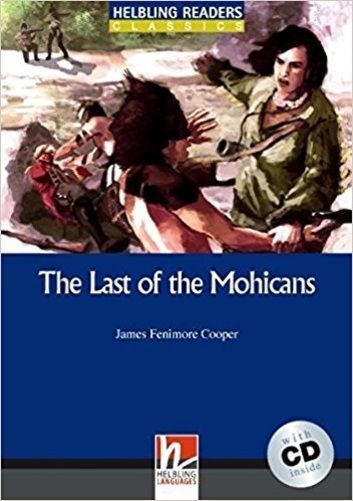The Last Of The Mohicans - Helbling Readers Classics - Blue Series - Level 5 - Book With Audio CD
-
R$ 19,00

-
R$ 20,00

-
R$ 20,00

Estamos em 1757. Os ingleses e os franceses estão em guerra no Canadá. Duas irmãs - Cora e Alice - estão a caminho do Forte Henry para encontrar seu pai, o General Munro. Começa então uma jornada perigosa na companhia de um oficial inglês, Duncan Heyward e o guia índio, Magua. No caminho, juntam-se á eles Hawkeye e seus companheiros Chingachgook e Uncas, os dois únicos sobreviventes da tribo dos Moicanos.
Cooper, James Fenimore
Brief biography: James Fenimore Cooper was born on September 15, 1789 in Burlington, New Jersey, the eleventh of twelve children. When he was one year old, he moved with parents William and Elizabeth to Cooperstown on Ostego Lake in central New York. During Cooper's boyhood, there were few backwoods settlers left and even fewer Indians. However, Cooper's early experiences in this frontier town gave him the background knowledge used in the Pioneers (1923).After boarding school in Albany, Cooper attended Yale College from 1803 - 1805 but was expelled. Apparently his expulsion stemmed from a dangerous prank that involved him blowing up another student's door. There Cooper acquired his lifelong distaste for New Englanders. In 1806, he became a sailor and then a midshipman in the Navy. At twenty, he inherited a fortune from his father and married Susan Augusta De Lancey, the daughter of a wealthy family that had remained Loyalist during the Revolution. Cooper married De Lancey New Years Day, 1811 and for two years he led the life of a country gentleman. When all five of his older brothers died, leaving widows and children behind, Fenimore began searching for work and wealth.In 1820, Cooper's wife bet him that he could write a book better than the one she was reading. What followed was Precaution (1820) a novel of morals and manners that showed the influence of Jane Austen.With a pleasant enough reception, he published The Spy: A Tale of Neutral Ground (1821) the first historical romance about the American Revolution. Then, on its success, Fenimore moved to New York City to pursue writing as a career.While in New York, he founded the Bread and Cheese Club and became the center of a circle that included notable painters of the Hudson River School as well as writers like William Cullen Bryant. In 1823, Cooper published The Pioneers which eventually consisted of five books about Natty Bumppo called The Leatherstocking Tales. With this, he created what can be critically viewed as the first American novel and hero. He also brought up the thematical complexities of natural right versus legal right, order versus change, and wilderness versus civilization which still fill the pages of American writing today. In 1826, at the height of his popularity, he sailed for Europe for what became a seven year stay. He wrote The Prairie (1827) and Notions of the Americans (1828) a defense of the United States against the attacks of European travelers. Under the half-patronizing epithet of "the American Scott" he wrote three historical novels that mimicked the writing of Sir Walter Scott. Returning to the US in 1833, Cooper was so hurt by a review that he penned A Letter to his Countrymen (1834) which was a bitter attack on American provincialism. He also became involved in disputes in Cooperstown where he was attacked by newspapers as a false aristocrat poisoned by European influences. In response, Cooper immersed himself in law suits aimed at gaining damages that would tame the irresponsibility of the press. Cooper established the principle that reviewers must work within the bounds of truth when they deal with an author rather than the book. Even with this scandal at his heels, Cooper continued to write a school primer, The American Democrat (1838) and three more Leatherstocking Tales: The Last of the Mohicans (1826), The Pathfinder (1840), and The Deerslayer (1841). Then came Cooper's obsession with the sea from his previous experience in the Navy. He penned The History of the Navy of the United States of America (1839), The Cruise of Sommers (1844), and The Distinguished American Naval Officers (1846).At the time of his death on September 14, 1851, Cooper was more successful and respected abroad than at home. Out of step with his countrymen, his work was very influential to European writers like Honore de Balzac and Leo Tolstoy. Yet, the weaknesses of Fenimore's fiction are quite well known and wide-spread. Mark Twain tore apart Fenimore's romanticism in Fenimore Coopers Literary Offenses (1895). Clearly, Fenimore's tone was criticized as being reactionary, romantic, and pedagogical in tone. However, Cooper did contribute a great deal to the genre of American fiction. In the grand enterprise, even today, everyone has read books and seen films that are directly and indirectly affected by Cooper's conception of Natty Bumppo and his creation of the American novel.Source: http://xroads.virginia.edu/~UG02/COOPER/cooperbiography.html |
| ISBN | 9783852720531 |
| Autor(a) | Cooper, James Fenimore (Autor) |
| Editora | Helbling Languages |
| Coleção/Serie | Helbling Readers - Blue Series |
| Idioma | Inglês Britânico |
| Faixa etária | Adolescentes (11-14) à Jovens Adultos (15-21) |
| Níveis de ensino | Intermediário (B1.2) |
| Edição | 1 |
| Ano de edição | 2008 |
| Páginas | 120 |
| Acabamento | Brochura |
| Dimensões | 20,80 X 14,70 |
Produtos relacionados
-
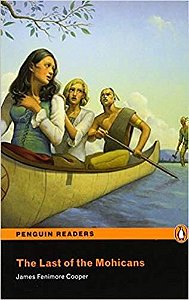 The Last Of The Mohicans - New Penguin Readers - Level 2 - Book With Audio CD MP3R$ 64,00ou R$ 60,80 via Pix
The Last Of The Mohicans - New Penguin Readers - Level 2 - Book With Audio CD MP3R$ 64,00ou R$ 60,80 via Pix -
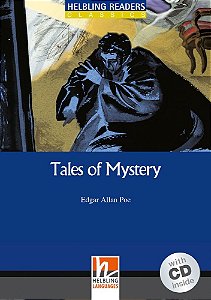 Tales Of Mystery - Helbling Readers Classics - Blue Series - Level 5 - Book With Audio CDou R$ 19,00 via Pix
Tales Of Mystery - Helbling Readers Classics - Blue Series - Level 5 - Book With Audio CDou R$ 19,00 via PixR$ 58,00R$ 20,0066% Desconto -
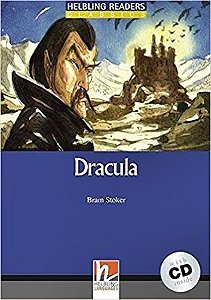 Dracula - Helbling Readers Classics - Blue Series - Level 4 - Book With Audio CDou R$ 19,00 via Pix
Dracula - Helbling Readers Classics - Blue Series - Level 4 - Book With Audio CDou R$ 19,00 via PixR$ 58,00R$ 20,0066% Desconto -
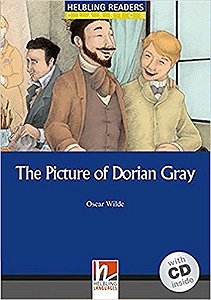 The Picture Of Dorian Gray - Helbling Readers Classics - Blue Series - Level 4 - Book With Audio CDR$ 58,00ou R$ 55,10 via Pix
The Picture Of Dorian Gray - Helbling Readers Classics - Blue Series - Level 4 - Book With Audio CDR$ 58,00ou R$ 55,10 via Pix
-
Categorias
- Ofertas Mágicas
- Especial Bett Brasil 2024
- Quinzena Da Matemática
- Dia Das Mães
- TOEFL
- Oxford Teachers' Club
- Ensino de Idiomas
- Literatura
- Infantil & Juvenil
- Dicionários
- Interesse Geral
- Educação
- Atividades Sociais e Profissionais
- Artes
- Ciências Biológicas
- Ciências Biomédicas
- Ciências Exatas e Tecnologia
- Ciências Humanas e Sociais
- Ocultar
Conteúdo
Sobre a loja
Distribuidora de livros e materiais para o ensino de idiomas como inglês, francês, alemão, italiano, espanhol, coreano, japonês, mandarim, hebráico entre outro idiomas do mundo, materiais didáticos, acadêmicos, literatura nacional e internacional entre outros.



